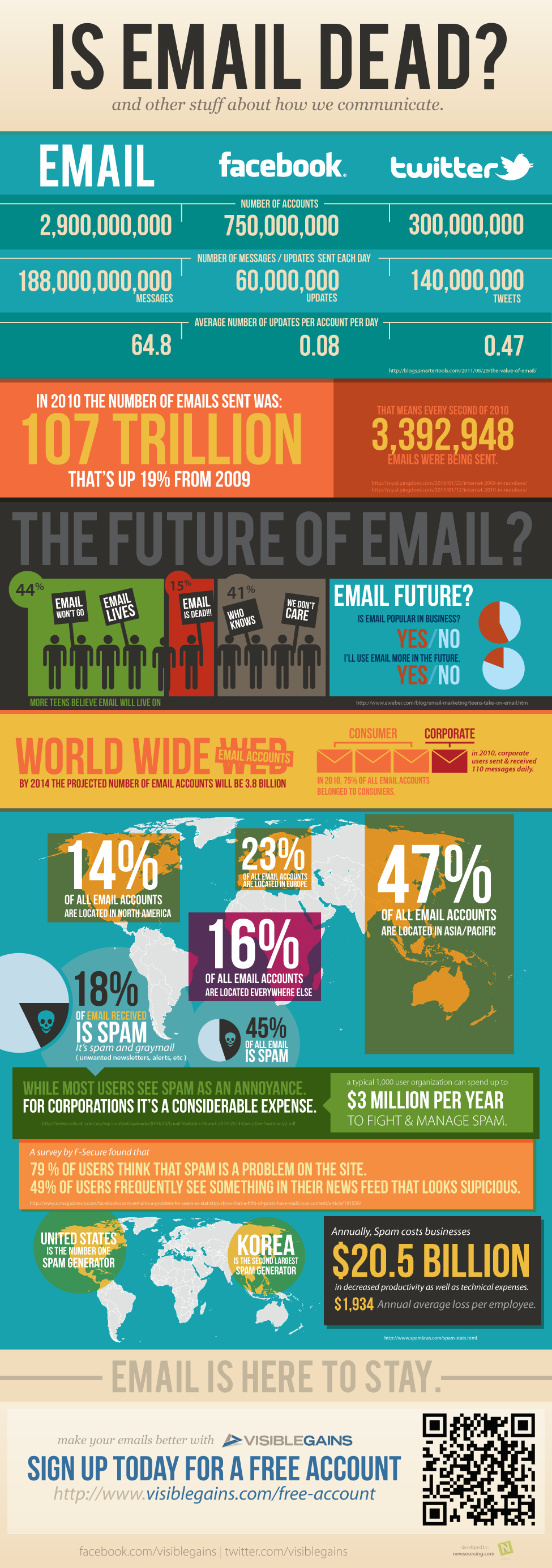 Mark Zuckerberg is a pioneer of the social web. Over the last eight years he’s led Facebook from a scrappy startup to one of the most powerful and influential companies. But when Zuckerberg says that email is going to die because young people prefer to text, you can’t help but laugh at the irony since providing your email address is actually how you register for a Facebook account. Despite how the web has transformed over the years, email is the one constant that has remained and is not going away anytime soon.
Mark Zuckerberg is a pioneer of the social web. Over the last eight years he’s led Facebook from a scrappy startup to one of the most powerful and influential companies. But when Zuckerberg says that email is going to die because young people prefer to text, you can’t help but laugh at the irony since providing your email address is actually how you register for a Facebook account. Despite how the web has transformed over the years, email is the one constant that has remained and is not going away anytime soon.
For example: Looking to sign up for more information about your favorite nonprofit? You need to provide an email address to sign up for their enewsletter. Looking to purchase an item on the web? You usually need an email address to check out and buy the item. Looking to make a donation? You need to provide an email address. Want to send a document to a colleague; chances are you are going to email it at some point unless everyone who you do business with is on Dropbox or Google Docs (which by the way you also need an email address to sign up for).
Email continues to grow and to be the dominant communications tool. And despite what Zuckerberg and some others think, email is not dying because social media is taking over. Both channels are important and should be a part an integrated communications strategy to reach activists and donors.
"Social media is a great additional engagement channel, but we find the level of commitment and responsiveness much stronger in email. Email is still king in the demographic groups that are most likely to become donors," said Joe Baker, Vice President of Causes and Advocacy for Care2, a social action network which serves more than 700 nonprofit clients, across the spectrum of cause verticals.
Check out these email stats:
There are an estimated 2.9 billion email addresses. In comparison there are 750 million Facebook accounts and 300 million Twitter accounts.
By 2014 there will be over 3.8 billion email accounts.
188 billion emails are sent daily, though granted a portion of those are spam. Over on Facebook, 60 million Facebook updates are made and 140 million tweets are sent through Twitter (and many of those could be considered spam too!).

**Learn more about improving your emails by downloading our free white paper, 12 Best Practices for Email Marketing.



COMMENTS